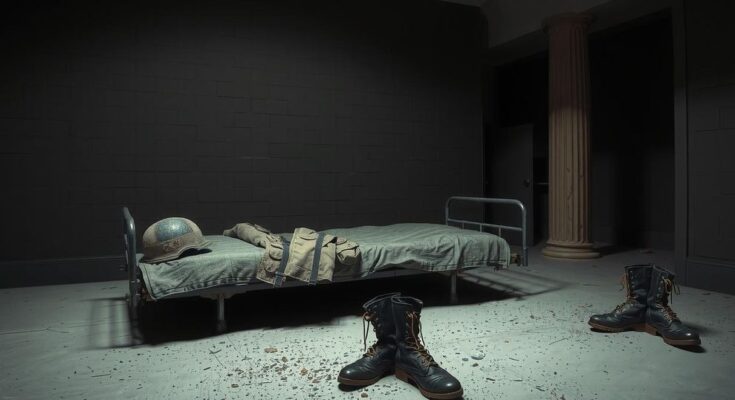Maj. Gen. Lul Ruai Koang’s call for officers aligned with Dr. Riek Machar to return to work overlooks the serious security threats they face. The recent arrests of opposition figures exacerbate their fears, leading to a culture of self-preservation. A lack of trust in government assurances complicates the situation, emphasizing the need for substantial changes to encourage these officers to rejoin their duties.
On March 9, 2025, Maj. Gen. Lul Ruai Koang, spokesperson for the Sudan People’s Defence Forces (SSPDF), publicly called for military officers linked to First Vice President Dr. Riek Machar to return to active duty. However, this request appears to reflect a misunderstanding of the precarious situation faced by these officers, who have largely gone into hiding following unrest in Nasir. Gen. Koang’s assurances lack credence, failing to address the underlying insecurity that prompts such decisions.
The reluctance of these officers to return is largely based on a justified fear for their safety amid a deteriorating security climate. Key figures from the opposition, such as Gen. Gabriel Duop Lam and various government officials, have been arrested, prompting many officers to withdraw to avoid similar fates. The enhanced security presence around Dr. Machar’s residence further suggests targeted actions against opposition members, fundamentally undermining trust in government security forces.
Moreover, the National Security Service (NSS) has made explicit claims regarding future arrests, which further compounds the officers’ feelings of vulnerability. Gen. Koang’s characterization of their absence as a mere “discovery” is misleading—this behavior is a predictable response to oppressive measures directed at opposition factions, effectively demonstrating a rational strategy of self-preservation.
Understanding South Sudan’s political landscape reveals a troubling culture where guilt is assumed prior to innocence. Political, military, and judicial systems in the country are often intertwined, treating arrests as tools of political control rather than instruments of justice. The experience of Gov. Kuel Aguer Kuel, who was imprisoned for an extended period before his acquittal, underscores how political interests override the principles of due process.
Given this context, it is unrealistic to expect officers who are aware of the risks involved to return to duty merely on the basis of Gen. Koang’s assurances. Previous arrests cast a long shadow, highlighting that obedience does not equate to safety from politically motivated detentions.
For officers to feel secure enough to return, a fundamental shift must occur. The release of detained officials, guarantees against further arrests, and trust-building measures from SPLM-IO leadership would be prerequisites. Absent such changes, Gen. Koang’s pleas will go unheard, seen merely as a political gesture unrelated to their immediate fears.
In conclusion, the current state of South Sudan’s security establishment is marked by profound political division, resulting in a pervasive distrust of state institutions. The prospects for Gen. Koang’s call being met with a serious response remain slim unless the government commits to distinct separations between military functions and political suppression. Until then, there will be ample justification for officers to remain hidden and mitigate the risk posed by an untrustworthy system.
In summary, the request for military officers in hiding to return to duty by Gen. Koang is unlikely to be heeded due to the prevailing atmosphere of fear and distrust. Systemic issues within South Sudan’s security framework contribute significantly to this hesitance. For genuine progress to occur, the government must take significant actions to rebuild trust and ensure the safety of its military personnel, thereby fostering a more stable and secure environment.
Original Source: www.radiotamazuj.org




